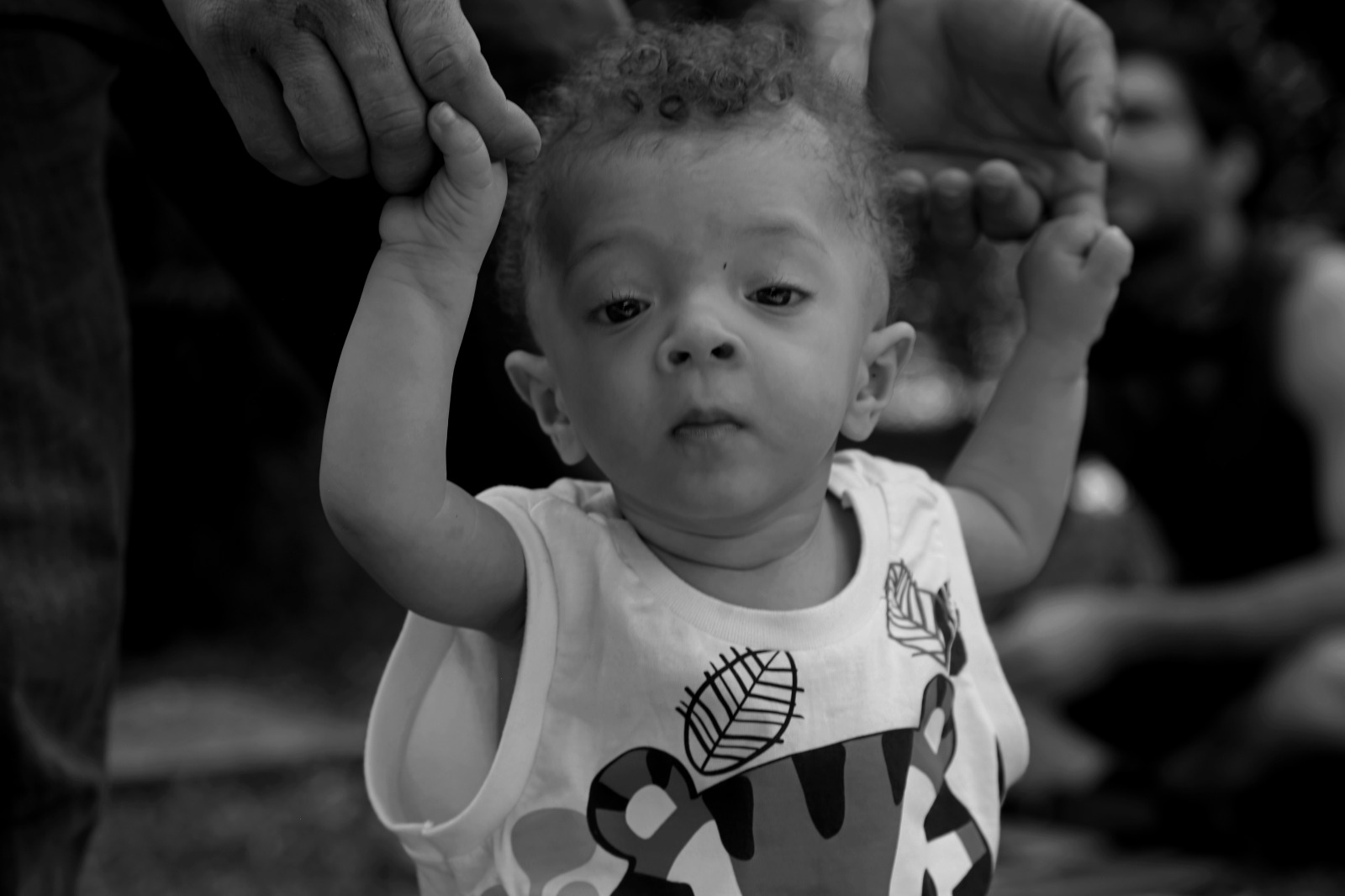Historical Milestone: Approval in the Brazilian Congress reinforces the importance of non-surgical approaches for intersex infants.
Proposals for the end of surgeries on intersex infants approved at the National Health Conference
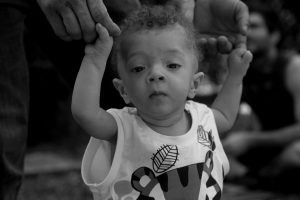
Ban on Surgeries on Intersex Babies: A Historic Achievement for Intersex Rights and Dignity.
On July 6th, a significant achievement in the fight for intersex rights took place in the Brazilian Congress. ABRAI, represented by Dr. Walter Neto and a psychologist who is a council member of the NGO, held a meeting with President Luiz Inácio Lula da Silva in Brasília. During the plenary session of the 17th National Health Conference, held on July 6th in Brasília, two crucial proposals were approved, putting an end to surgeries on intersex infants. These proposals were included in two distinct thematic axes: thematic axis 3 – “Ensuring Rights and Defending SUS, Life, and Democracy,” and thematic axis 4 – “Tomorrow will be a different day for all people.”

Dr. Walter Mastelaro Neto – lawyer at ABRAI and founder of ABRAI. Dr. Ana Amorim – physician and president of ABRASITTI.
“National health conferences are evolving into increasingly representative spaces, with a growing diversity of races, ethnicities, and genders.”
The National Health Conference plays a crucial role in shaping guidelines and proposals that guide public health policies in Brazil in the coming years. These conferences provide guidance and shape new thinking in public policy. Dr. Walter Neto emphasized the significance of the seventh conference, highlighting how these national health conferences have evolved into increasingly representative spaces, with a growing diversity of races, ethnicities, and genders.
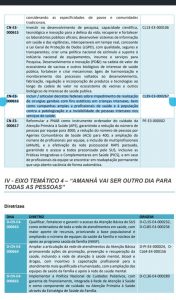
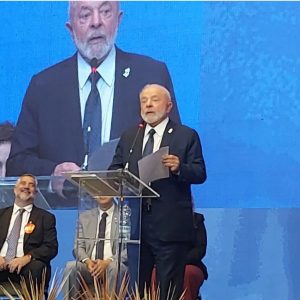
President of Brazil Luiz Inácio Lula da Silva.
Notable Achievement: End of Gender Assignment Surgeries on Intersex Babies
The newly approved guidelines and proposals represent a notable achievement for the intersex movement. The practice of performing gender assignment surgeries on intersex babies has been harmful, depriving these children of their integrity and hindering their full and natural development. Thais Emilia, president of ABRAI, shared her own experience, revealing the medical pressure she faced when her child was born pseudo-hermaphrodite. Thais and her spouse opposed the irreversible surgery suggested by healthcare professionals.
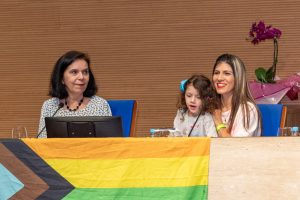
Thais is the president and founder of ABRAI, while Rachel Rocha is an attorney and also the founder of ABRAI.
Thanks to the birth of Jacob and the visibility that followed, the prohibition of these surgeries became possible, thanks to the activism surrounding the intersex cause.
Psychologist Talita Fabiano de Carvalho, CRP 06/71781, highlighted the violence and oppression involved in shaping the subjectivity of intersex babies. She emphasized that we are born as we are, and throughout life, we are molded by social norms and values. These misguided constructions, determined by historically hegemonic groups, ignore and annihilate individual subjectivity, causing profound psychological and social suffering and generating feelings of non-belonging and discrimination.
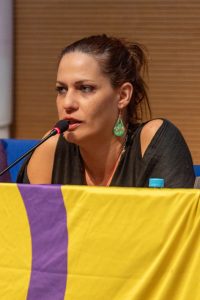
Talita Carvalho is the President of CRP (Regional Council of Psychology) and a collaborating psychologist with ABRAI (Brazilian Association of Intersex People).
“The mutilation of intersex babies, aside from being unnatural (as it is a biological condition), is extremely violent and oppressive in the formation of their subjectivity. It is an important advancement to prohibit surgeries within the scope of the Unified Health System (SUS), as they compromise bodily autonomy and cause psychological and social distress.”
The approval of these proposals is a fantastic milestone, allowing intersex children the opportunity to know themselves and their stories, as well as having autonomy over their bodies. Dr. Mila, a medical specialist, emphasized the importance of a multidisciplinary team to ensure proper care for intersex individuals, involving the family in clinical and surgical decisions and always considering the child’s voice when possible.

Dr. Mila – Professor of Urogynecological Surgery at Unifesp.
“A multidisciplinary team is required to ensure proper care for intersex individuals. The family needs to be informed about the risks and benefits of each procedure.”
Eliane Garcia, a hairdresser and makeup artist, shared her story as a mother of an intersex child. Her daughter, Manuelly, was born without a vagina, with half-formed testicles, and two uteruses. Eliane reported that until the moment of her child’s birth, she had never heard about what it meant to be intersex. Unfortunately, during the medical care, the urologist chose to remove the girl’s testicles without adequately explaining to the mother what was happening.
Initially, Manuelly was referred to the ICU, and Eliane couldn’t understand what was happening at that moment. Later, she received an explanation that her daughter had bladder exstrophy, a congenital malformation where the bladder is located outside the abdomen. However, no professional mentioned the issue of the absence of a vagina or testicles in the child. Over time, the girl underwent two surgeries for the reconstruction of the urinary system, and according to Eliane, during these procedures, the urologist took the opportunity to remove the scrotum without adequately clarifying the child’s internal organs. As a result, Manuelly suffered severe consequences, including infections, urinary and fecal incontinence.
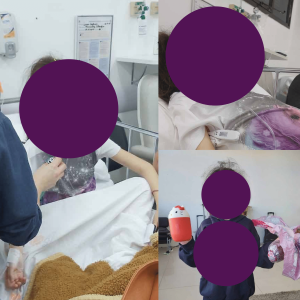
Manu during one of her ICU recoveries.
“My daughter was born pseudo-hermaphrodite, and I faced significant medical pressure for her to undergo surgery. This ban is the first step towards respecting the dignity of these babies and combating the obstetric violence we face.”
This story serves as a warning about the irreversible harm caused by surgeries on intersex babies and highlights the importance of respecting the autonomy of these children’s bodies, ensuring that families are properly informed about the risks and benefits of each proposed procedure.
Shay, the vice-president of ABRAI, emphasizes that this achievement is a day of celebration for all intersex individuals, representing a historic milestone for Brazil and its public policies regarding intersex activism. Shay shares their own experience as an intersex person and emphasizes the negative impact of surgeries performed in childhood. They express hope that this achievement will bring about significant change in the lives of intersex children and babies, ensuring a more respectful and inclusive future.
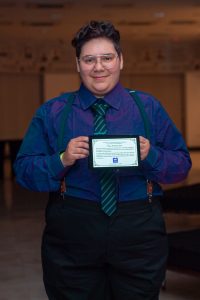
Shay – Intersex Vice President of ABRAI.
“I was born intersex and underwent two sexual reassignment surgeries in my childhood. Parts of my body were taken away from me, and I was just a child. From today onwards, the lives of intersex children and babies will be different. My struggle was not in vain, and I am extremely happy.”
This approval represents a significant advancement in advocating for the rights and promoting the health of intersex individuals in Brazil. It is essential to raise awareness about gender self-determination and ensure the physical and psychological well-being of these children.
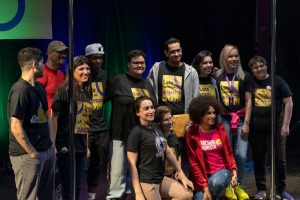
The ABRAI Board of Directors.

The ABRAI Board of Directors.
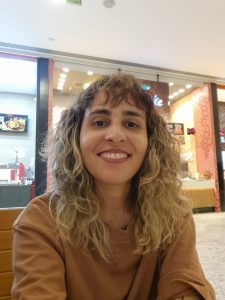
Ceu Albuquerque – Intersex activist and journalist. A great advocate for people with Adrenal Hyperplasia.

Thais – President of ABRAI (Intersex Brazilian Association) and Dionne – Executive Director of ABRAI.

Dionne Freitas, the activist, during childhood, being raised and harmonized as a boy.
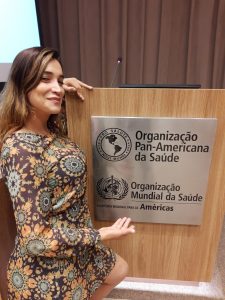
Dionne Freitas, the activist, at the United Nations (UNU).
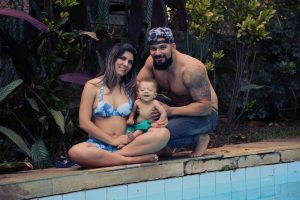
Thaís EmilIia, Jacob and Elisberto.
Interviews, content edited by Lucas Bafoni, journalist. MTB 00094698/SP
Apoie a ABRAI
Para manter os seus canais de informação, oferecer cursos e palestras ou ajudar diretamente pessoas Intersexo em situação de fragilidade física e psicológica, a ABRAI precisa de fundos. Veja como ajudar.

